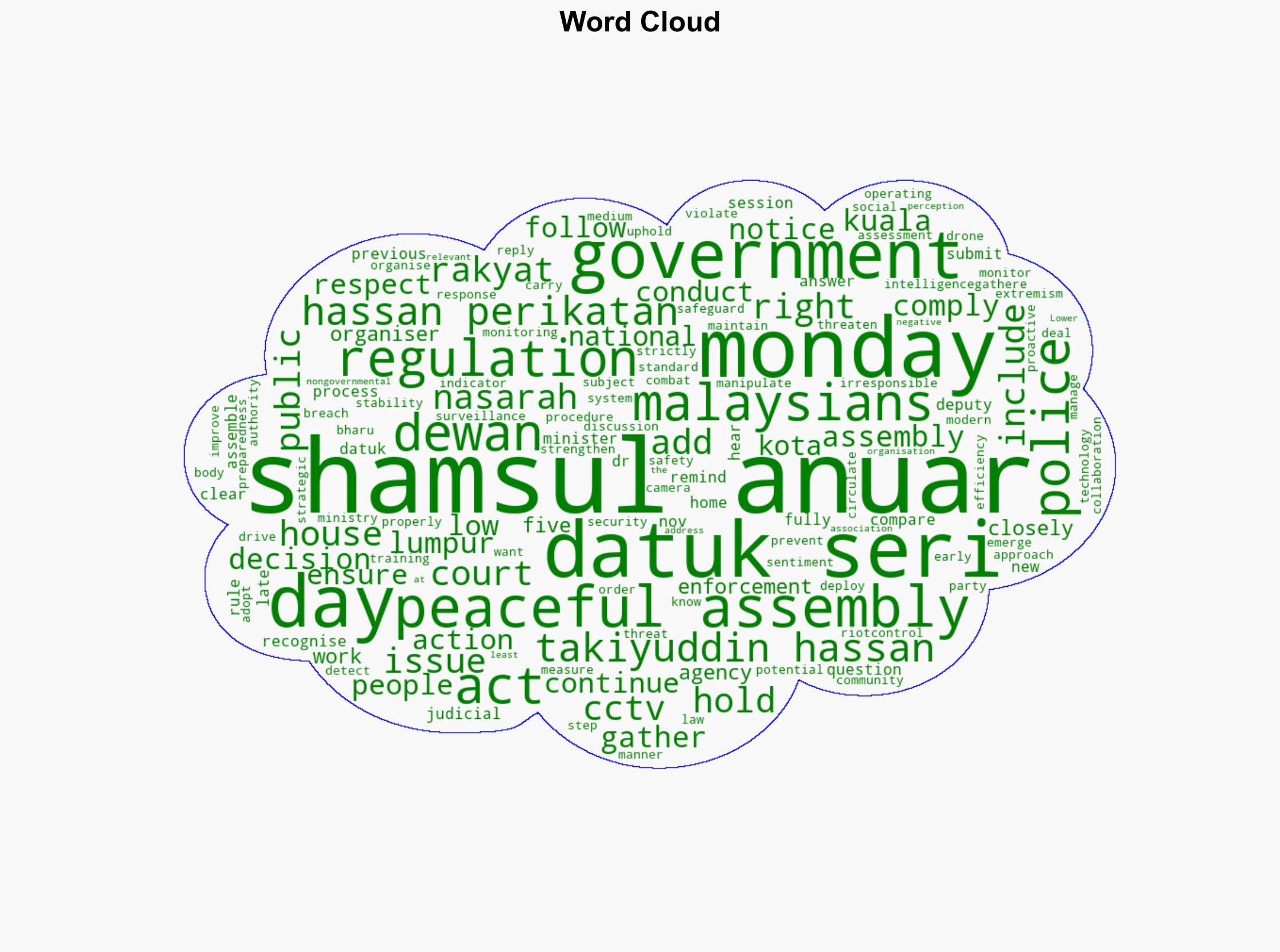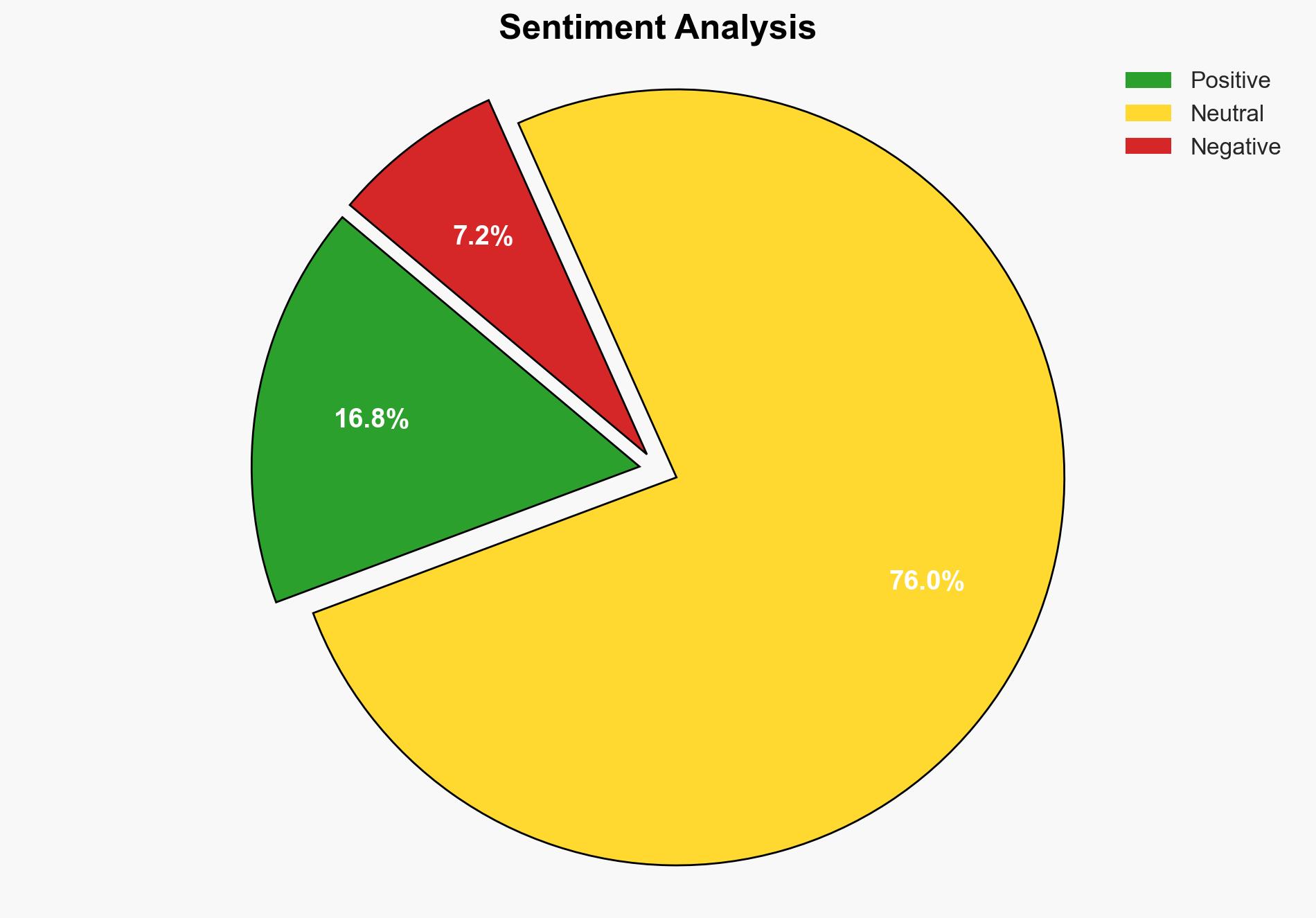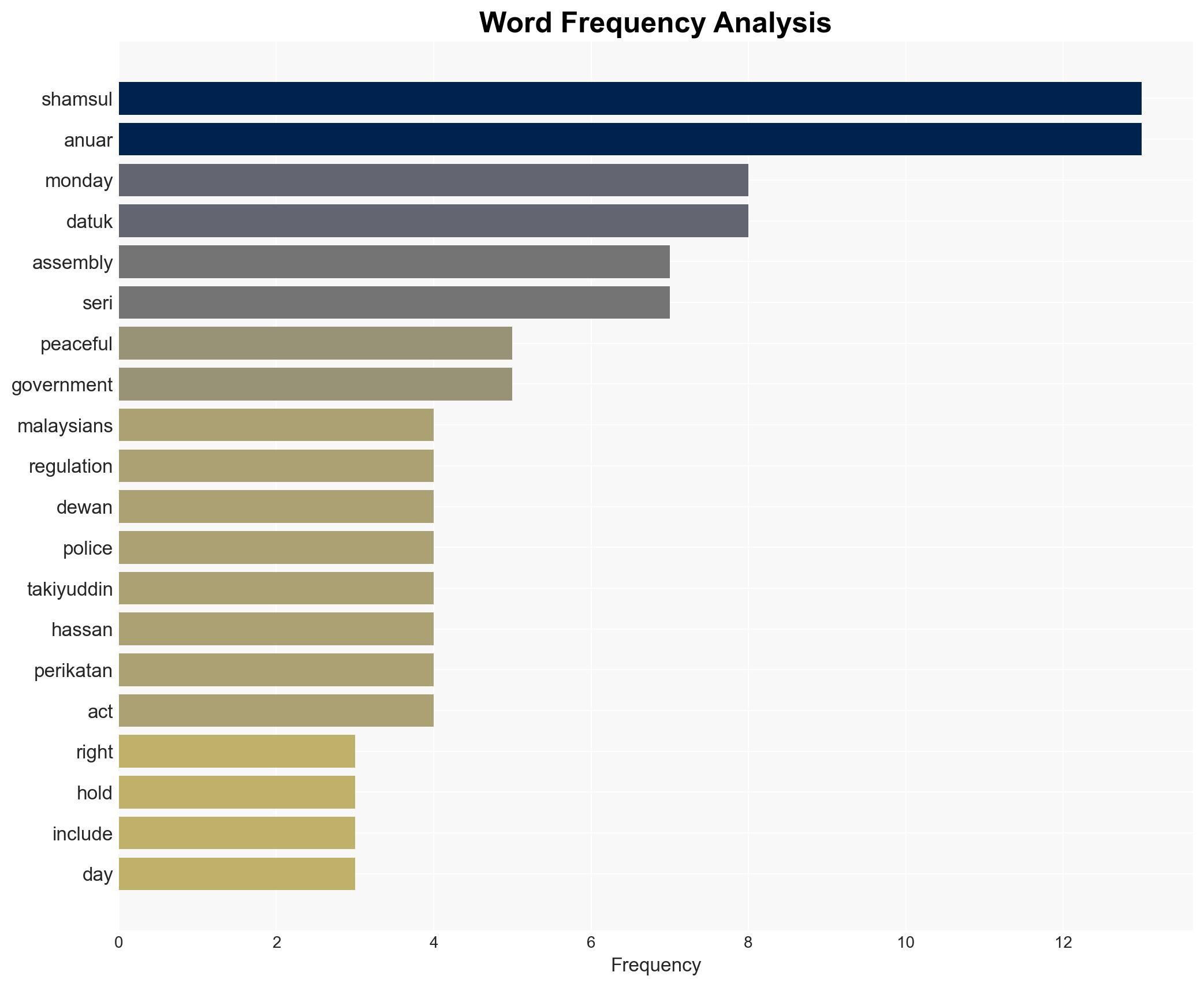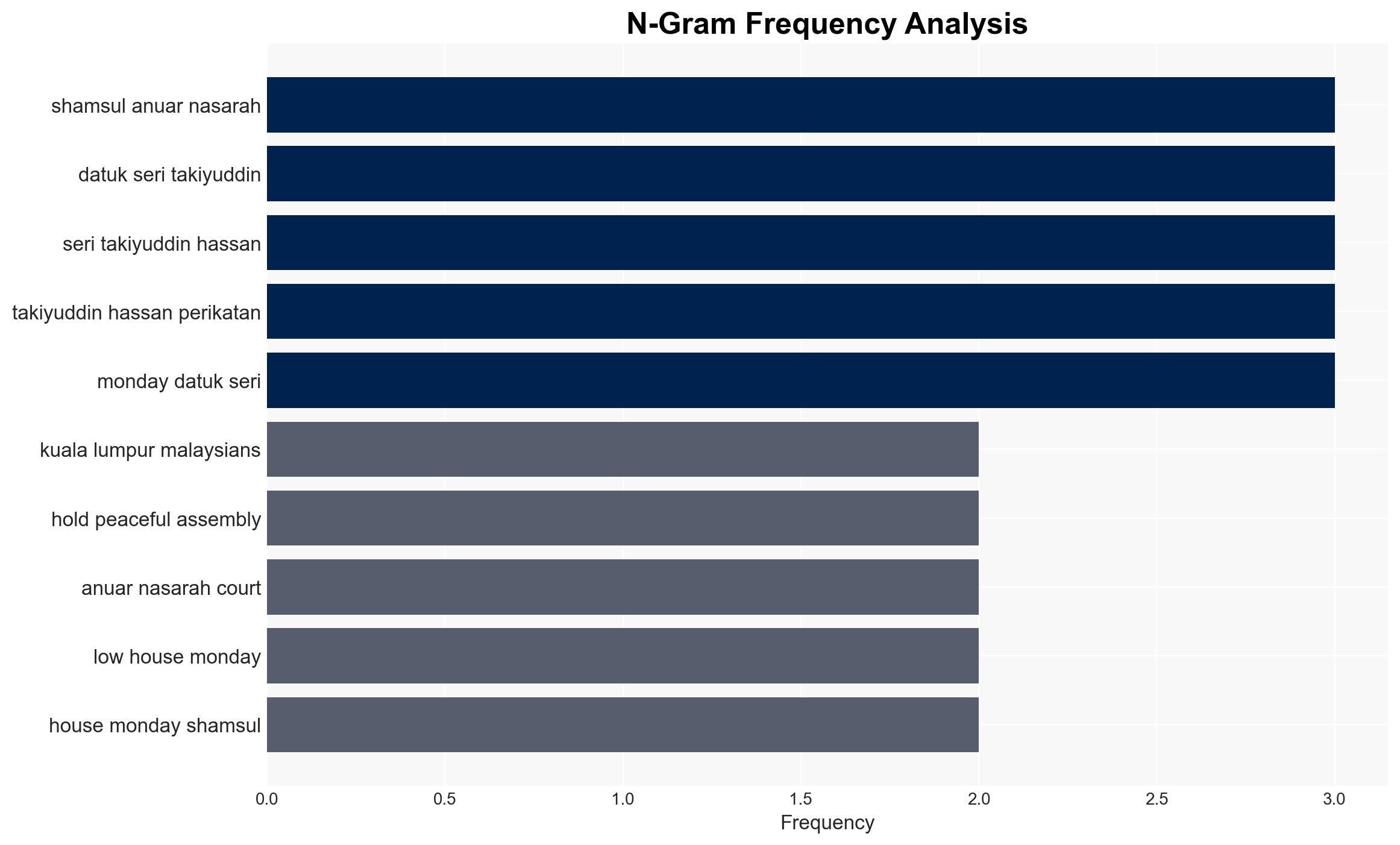M’sians have right to hold peaceful assemblies but must give five days notice – The Star Online
Published on: 2025-11-17
AI-powered OSINT brief from verified open sources. Automated NLP signal extraction with human verification. See our Methodology and Why WorldWideWatchers.
Intelligence Report:
1. BLUF (Bottom Line Up Front)
The Malaysian government’s requirement for a five-day notice for peaceful assemblies is a strategic move to balance public order and citizens’ rights. The most supported hypothesis is that this regulation aims to preemptively manage potential unrest while respecting judicial decisions. Confidence Level: Moderate. Recommended action includes monitoring the implementation of this regulation and assessing its impact on civil liberties and public order.
2. Competing Hypotheses
Hypothesis 1: The five-day notice requirement is primarily intended to maintain public order by allowing authorities sufficient time to prepare for potential disruptions.
Hypothesis 2: The regulation is a strategic maneuver to subtly discourage assemblies by imposing bureaucratic hurdles, thus limiting public dissent.
Hypothesis 1 is more likely given the government’s emphasis on respecting judicial processes and the proactive measures outlined for maintaining public safety. However, Hypothesis 2 cannot be entirely dismissed due to potential underlying political motives to control public expression.
3. Key Assumptions and Red Flags
Assumptions: The government genuinely intends to uphold citizens’ rights while ensuring public safety. The five-day notice is a reasonable timeframe for preparation.
Red Flags: Potential for misuse of regulation to suppress dissent. Lack of transparency in how intelligence is gathered and used could indicate ulterior motives.
Deception Indicators: Discrepancies between public statements and actual enforcement practices could suggest deceptive intent.
4. Implications and Strategic Risks
The regulation could lead to increased tensions if perceived as a tool for repression, potentially escalating into larger protests. Cyber and informational threats may arise if groups use digital platforms to circumvent notice requirements. Economically, prolonged unrest could deter investment and tourism. Politically, mishandling assemblies could erode public trust in the government.
5. Recommendations and Outlook
- Monitor the enforcement of the five-day notice regulation to ensure it is applied fairly and transparently.
- Engage with civil society organizations to address concerns and foster dialogue between the government and citizens.
- Best Scenario: Regulation is effectively implemented, balancing order and rights, leading to stable public trust.
- Worst Scenario: Perceived as repressive, leading to widespread unrest and international criticism.
- Most-likely Scenario: Initial resistance followed by gradual acceptance as the government demonstrates fair enforcement.
6. Key Individuals and Entities
Datuk Seri Dr. Shamsul Anuar Nasarah – Deputy Home Minister
Datuk Seri Takiyuddin Hassan – Perikatan Kota Bharu
7. Thematic Tags
Structured Analytic Techniques Applied
- Cognitive Bias Stress Test: Expose and correct potential biases in assessments through red-teaming and structured challenge.
- Bayesian Scenario Modeling: Use probabilistic forecasting for conflict trajectories or escalation likelihood.
- Network Influence Mapping: Map relationships between state and non-state actors for impact estimation.
Explore more:
National Security Threats Briefs ·
Daily Summary ·
Support us
·





